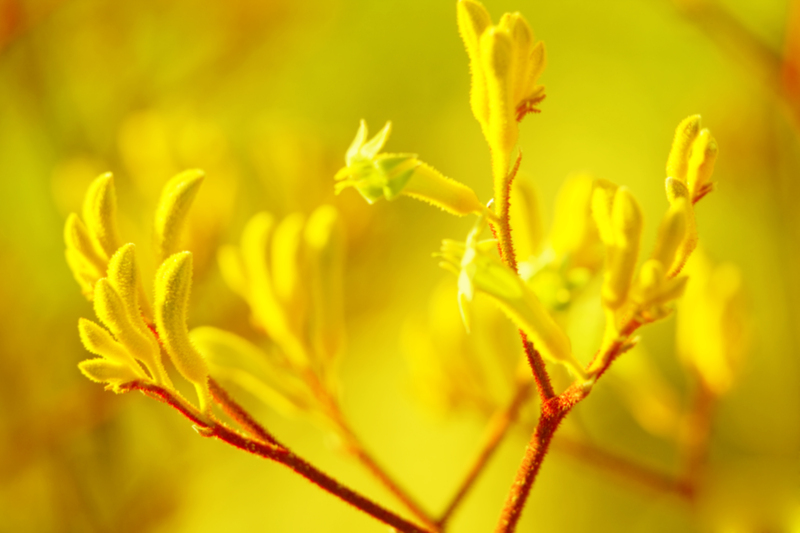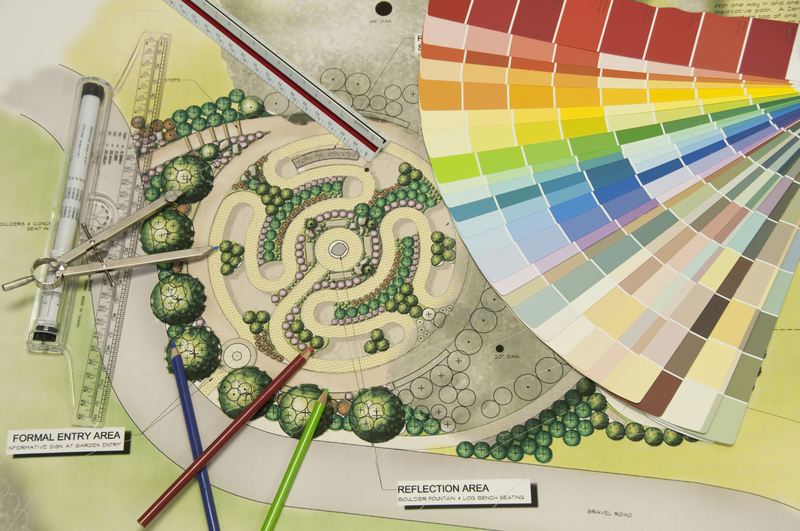Discover the top 9 gardening tips perfect for novice growers
Posted on 24/09/2025
Discover the Top 9 Gardening Tips Perfect for Novice Growers
Are you eager to begin your gardening journey but not sure where to start? Becoming a successful gardener is an exciting adventure, but it can feel overwhelming when you're new to the world of seeds, soil, and sunlight. Whether you wish to cultivate a vibrant vegetable patch, design a flower-filled oasis, or simply enjoy some fresh herbs on your balcony, mastering the essentials is key. In this comprehensive article, we'll unveil the best gardening tips every beginner needs to confidently dig in the dirt and watch your plants flourish. Get ready to discover the top 9 gardening tips that are perfect for novice growers!

1. Choose the Right Location for Your Garden
One of the most crucial gardening tips for beginners is picking the ideal site for your plants. The success of your beginner garden largely depends on the amount of sunlight, shade, and wind exposure the area receives.
Consider Sunlight Requirements
- Most vegetables and many flowers need at least 6 hours of sunlight each day.
- Observe your yard or balcony during the day to identify which spots receive full sun, partial sun, or shade.
- For container gardening, place pots in areas where sunlight is ample or easily adjustable.
Accessibility and Protection
- Ensure your garden is easily accessible for watering, weeding, and harvesting.
- Shelter your plants from strong winds and protect them from roaming pets or garden pests.
Remember, starting small is wise. Choose a manageable area so you don't feel overwhelmed as a new gardener.
2. Understand and Prepare Your Soil
Healthy plants begin with healthy soil! Soil preparation is one of the most valuable beginner-friendly gardening tips you can follow. Good soil provides essential nutrients, supports root growth, and helps retain moisture.
Test and Amend Your Soil
- Use a simple soil test kit from your local garden center to determine pH and nutrient levels.
- Common soil types include sandy, clay, silt, or loam. Loam is ideal for most gardening because it drains well and holds nutrients.
- You may need to amend your soil with:
- Compost or organic matter for improved structure and fertility.
- Sand for better drainage if your soil is heavy or clay-based.
- Peat moss or coconut coir for more moisture retention in sandy soils.
Take care to remove weeds and stones before planting. Well-prepared soil gives your plants the best foundation to thrive.
3. Choose Easy-to-Grow Plants for Starters
Not all plants are equally suited for beginners. Selecting easy-to-grow varieties is a must-have tip for any first-time gardener.
Recommended Starter Plants:
- Leafy greens: Lettuce, spinach, and kale
- Herbs: Basil, mint, parsley, and chives
- Root vegetables: Radishes and carrots
- Flowers: Marigolds, zinnias, and sunflowers
These plants tolerate a range of conditions and tend to be more forgiving if you make a mistake. As you gain confidence, you can branch out into more challenging varieties.
4. Water Wisely and Consistently
Watering is a fundamental gardening skill for beginner growers. Both overwatering and underwatering can cause plant problems. Understanding the specific moisture needs of your plants is essential.
Best Watering Practices
- Water deeply and less frequently. This encourages roots to grow deeper rather than staying close to the surface.
- Water in the early morning to reduce evaporation and fungal diseases.
- Use a soaker hose or watering can directed at the base of plants to keep leaves dry.
- Container plants often need more frequent watering, especially in hot weather.
Check soil moisture before watering. Stick your finger about 2 inches into the soil; if it feels dry, it's time to water.
5. Apply Mulch to Conserve Moisture and Prevent Weeds
Mulching is a time-saving gardening hack that's easy for beginners to implement. Mulch keeps soil moist, regulates temperature, and suppresses weeds, making maintenance simpler for new gardeners.
Types of Mulch
- Organic mulch: Shredded leaves, straw, wood chips, or grass clippings
- Inorganic mulch: Landscape fabric, pebbles, or rubber chips
Apply a layer of mulch--about 2-3 inches thick--around your plants (but not directly against the stems). Over time, organic mulch will break down, boosting your soil's health.
6. Feed Your Plants: Know When and How to Fertilize
Fertilizing might sound complicated, but it's essential to keep your garden growing strong. Novice gardeners should focus on balanced, slow-release fertilizers that supply nutrients steadily.
Fertilizer Tips for Beginners
- Read plant labels or seed packets for fertilizer recommendations specific to each crop.
- Use organic fertilizers (like compost tea, fish emulsion, or bone meal) for a gentle nutrient boost.
- Too much fertilizer can damage plants--less is often more when starting out.
Fertilize during the growing season and avoid applying fertilizer to dry soil, which can cause root burn.
7. Watch for Pests and Diseases Early
Even a beginner garden is susceptible to pests and plant diseases. Early detection and action is key to minimizing damage and keeping your garden healthy.
Identify and Manage Problems
- Check your plants regularly for signs of trouble, such as yellowing leaves, spots, chewed edges, or sticky residue.
- Encourage beneficial insects (like ladybugs and lacewings) that eat harmful pests.
- Remove pests by hand or use mild organic sprays like insecticidal soap if needed.
- Rotate crops each year to prevent soil-borne diseases.
By responding quickly, you can prevent small issues from becoming major infestations.
8. Learn from Experienced Gardeners and Resources
One of the best tips for new gardeners is to tap into the knowledge of the gardening community. Surround yourself with reliable advice and continually expand your understanding.
Where to Find Guidance
- Local nurseries or garden centers: Staff are usually happy to help with plant choices and care tips.
- Online gardening forums and blogs: These offer advice, troubleshooting, and inspiration for every level.
- Books and magazines: Comprehensive guides, such as The Vegetable Gardener's Bible, offer step-by-step instructions.
- Community gardens: A great place to meet other growers, swap tips, and see what works in your area.
Don't hesitate to ask questions--remember, every expert gardener once started as a novice!

9. Be Patient and Enjoy the Process
Gardening is as much about the journey as it is about the harvest. Plants grow at their own pace, and not every season will be perfect. Instead of striving for instant results, focus on learning and savoring each stage.
Cultivating Patience Pays Off
- Keep a gardening journal to record what works and what doesn't.
- Celebrate small milestones--your first sprout, flower, or ripe tomato.
- Remember that mistakes are learning opportunities for better results next season.
Most importantly, enjoy spending time outdoors and connecting with nature--that's what gardening is all about.
Conclusion: Start Your Growing Adventure Today
By following these top 9 gardening tips for novice growers, you'll be well on your way to cultivating a thriving garden. Choose the right location, prepare your soil, pick easy plants, and remember to water, mulch, and feed your green friends wisely. Keep an eye out for bugs, tap into the wisdom of experienced gardeners, and--above all--be patient with yourself and your plants!
With these best beginner gardening tips, you're ready to transform your patch of earth--no matter how small--into a beautiful, productive space. Grab your trowel, put on your gloves, and discover the joy of gardening as a novice grower starting today!
Latest Posts
Discover the top 9 gardening tips perfect for novice growers
Harnessing the Power of Gardening to Tackle Climate Change
Innovative Shapes and Techniques for Hedge Trimming

